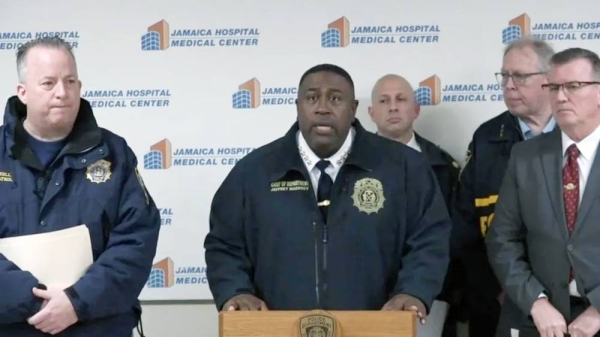
The Syrian Network for Human Rights SNHR said in a report released on Sunday that 329 civilians were killed in the eastern Damascus suburb of Ghouta, including 29 children, in two months of escalation. Meanwhile, the UNICEF said that over 30 children were killed in the first two weeks of 2018 in escalating violence in Ghouta, where an estimated 200,000 children have been trapped under siege since 2013.
The SNHR report notes that the de-escalation agreement, which went into effect in May 2017, has failed to end the massacres, violations, and the indiscriminate, or deliberate, attacks by the Syrian-Russian alliance. The local agreements that followed in Eastern Ghouta region haven’t fared any better too. The report records 28 massacres and 84 attacks on vital civilian facilities, including 12 medical facilities, from July 22, 2017, the day on which Jaish al Islam and Russian forces signed the agreement, until the time of this writing.
UNICEF Representative in Syria Fran Equiza said: “UNICEF received information from inside east Ghouta that people are taking shelter underground in fear for their lives. One particular heavy attack on residential buildings was so strong it reportedly injured 80 civilians including children and women. Medical personnel struggled to pull survivors out of the rubble."
The statement reported that two medical facilities came under attack in the past days in Eastern Ghouta, and most health centers had to close because of the violence. In some areas, mobile emergency clinics are the only way for families to receive medical treatment and aid. In Idlib, the maternity and pediatric hospital in Ma’arrat An Nu’man was attacked three times taking it out of service and killing at least one patient and two medical staff.
Also, schools have been reportedly closed in and around Eastern Ghouta at a time when children elsewhere in Syria are sitting for their mid-term exams.
“While we saw a small glimmer of hope at the end of last year with the evacuation of 17 children in urgent need of medical attention; increased violence in and around east Ghouta turned hope into despair for the remaining 120 children who continue to suffer in silence waiting for urgent medical evacuation," Equiza added.
“We must be able to reach children in need of humanitarian assistance, urgently and without restrictions, wherever they are in Syria," he stressed, adding that the various parties to the conflict can make that happen by immediately allowing humanitarian workers to reach them with life-saving assistance.









